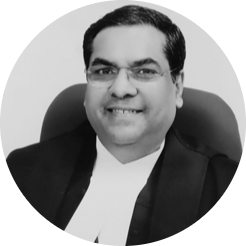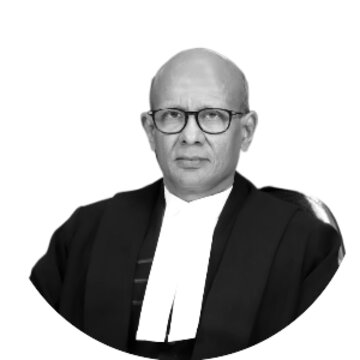Supreme Court: While considering the writ petitions challenging the insertion of ‘socialist’ and ‘secular’ in the Preamble to the Constitution by the Constitution (Forty-second Amendment) Act in 1976; the Division Bench of Sanjiv Khanna, CJ., and Sanjay Kumar, J., dismissed the petitions stating that there was no legitimate cause or justification for challenging this Constitutional Amendment after nearly 44 years. The Court further said that the words “socialist” and “secular” terms have achieved widespread acceptance with their meanings understood by “We, the people of India” without any semblance of doubt. Furthermore, the additions to the Preamble have not restricted or impeded legislations or policies pursued by elected governments, provided such actions did not infringe upon fundamental and constitutional rights or the basic structure of the Constitution.
Background:
The challenge to the insertion of “socialist” and “secular” in the Preamble was made on several grounds. It was contended that retrospectivity of the insertion in 1976, resulted in falsity as the Constitution was adopted on the 26-11-1949; the word ‘secular’ was deliberately eschewed by the Constituent Assembly, and the word ‘socialist’ fetters and restricts the economic policy choice vesting in the elected government, which represents the will of the people.
It was further submitted that the 42nd Amendment is unconstitutional as it was ‘passed’ during the Emergency in 2-11-1976, after the normal tenure of the Lok Sabha that had ended on 18-3-1976; therefore, there was no will of the people to sanction the amendments.
Court’s Assessment:
At the very outset, the Court clarified that the instant petitions did not require detailed adjudication as the flaws and weaknesses in the arguments are obvious and manifest.
The Court stated that ‘secular’ and ‘socialist’ and ‘integrity’ were inserted in the Preamble vide the Constitution (Forty-second Amendment) Act, 1976. Article of the permits amendment of the Constitution; the power to amend unquestionably rests with the Parliament and this amending power extends to the Preamble. Amendments to the Constitution can be challenged on various grounds, including violation of the basic structure of the Constitution.
“The fact that the Constitution was adopted, enacted, and given to themselves by the people of India on the 26th day of November 1949, does not make any difference. The date of adoption will not curtail or restrict the power under Article of the ”.
The retrospectivity argument, if accepted, would equally apply to amendments made to any part of the Constitution, though the power of the Parliament to do so under Article 368 is incontrovertible and is not challenged.
The Court further said that it is true that the Constituent Assembly had not agreed to include the words ‘socialist’ and ‘secular’ in the Preamble. The Constitution is a living document, with power given to the Parliament to amend it in terms of and in accordance with Article 368. The Court stated that in 1949, the word ‘secular’ was considered imprecise, as some scholars and jurists had interpreted it as being opposed to religion.
“Over time, India has developed its own interpretation of secularism, wherein the State neither supports any religion nor penalizes the profession and practice of any faith”.
The Court further highlighted that the Preamble’s original tenets, i.e., equality of status and opportunity; fraternity, ensuring individual dignity, read alongside justice – social, economic political, and liberty; of thought, expression, belief, faith, and worship, reflect this secular ethos.
The Court further added that several landmark precedents like Kesavananda Bharati v. State of Kerala, and S.R Bommai v. Union of India, , have observed that secularism is a basic feature of the Constitution. In the past the Court through its decisions had elucidated that although the term ‘secular’ was not present in the Constitution before its insertion in the Preamble by the Constitution (Forty-second Amendment) Act, 1976, secularism essentially represents the nation’s commitment to treat persons of all faiths equally and without discrimination.
“In essence, the concept of secularism represents one of the facets of the right to equality, intricately woven into the basic fabric that depicts the constitutional scheme’s pattern”.
Moving onto the expression “socialist”, the Court stated that the word ‘socialism’, in the Indian context should not be interpreted as restricting the economic policies of an elected government. Neither the Constitution nor the Preamble mandates a specific economic policy or structure, whether left or right. Rather, ‘socialist’ denotes the State’s commitment to be a welfare State and its commitment to ensuring equality of opportunity.
“India has consistently embraced a mixed economy model, where the private sector has flourished, expanded, and grown over the years, contributing significantly to the upliftment of marginalized and underprivileged sections in different ways”.
The Court pointed out that in the Indian framework, socialism embodies the principle of economic and social justice, wherein the State ensures that no citizen is disadvantaged due to economic or social circumstances. The word ‘socialism’ reflects the goal of economic and social upliftment and does not restrict private entrepreneurship and the right to business and trade, a fundamental right under Article of the .
The Court further pointed out that during the deliberations over 44th Constitutional Amendment in 1978, “socialist” and “secular” came under scrutiny as the terms were added during Emergency. However, the word ‘secular’ was explained as denoting a republic that upholds equal respect for all religions, while ‘socialist’ was characterized as representing a republic dedicated to eliminating all forms of exploitation—whether social, political, or economic.
Pointing out its recent decision in Property Owners Assn. v. State of Maharashtra, , the Court noted that all doubt and ambiguity have been cleared in this judgment wherein it was held that the Constitution, as framed in broad terms, allows the elected government to adopt a structure for economic governance which would sub-serve the policies for which it is accountable to the electorate. Indian economy has transitioned from the dominance of public investment to the co-existence of public and private investment.
The Court raised doubts vis-a-vis the instant writ petitions filed after 44 years of the 42nd Amendment, especially when words ‘socialist’ and ‘secular’ have become integral to the Preamble. Hence, with the afore-stated assessment, the Court deemed it fit to dismiss the petitions stating that circumstances do not warrant the Court’s exercise of discretion to undertake an exhaustive examination, as the constitutional position remains unambiguous, negating the need for a detailed academic pronouncement.
CASE DETAILS
| Citation: Writ Petition (Civil) No 645 of 2020 Appellants : Dr Balram Singh Respondents : Union of India | Advocates who appeared in this case For Petitioner(s): Petitioner-in-person; Mr. Gopal Shankarnarayanan, Sr. Adv. Mr. Ashwini Kumar Upadhyay, Adv. Mr. Ashwani Kumar Dubey, AOR Mr. Shourya Das Gupta, Adv. Ms. Tanya Shrivastava, Adv. Ms. Shreya Nair, Adv. Mr. Vishnu Shankar Jain, AOR Mr. Hari Shankar Jain, Adv. Mr. Parth Yadav, Adv. Ms. Mani Munjal, Adv. Ms. Marbiang Khongwir, Adv. For Respondent(s): Mr. Prateek Kumar, AOR Mr. Ruchir Ranjan Rai, Adv; Mr. Alakh Alok Srivastava, AOR Mr. Rishabh Bafna, Adv. Dr. G.V.rao, Sr. Adv. Mr. Bijan Kumar Ghosh, AOR Mr. Ujjwal Banerjee, Adv. Mr. Chand Qureshi, AOR Mr. Santi Ranjan, Adv. Mr. Rahul Mohod, Adv. Mr. Sanjay Gyan, Adv. Mr. Vijay Kumar, Adv. Mr. Chandan Kumar Mandal, Adv. Mr. Rochak Kharbanda, Adv. Dr. O.P. Kharbanda, Adv. Mr. Abid Ali Beeran, Adv. Mr. Sriram P., AOR Mr. Ms Vishnu Shankar, Adv. Mr. Aditya Santosh, Adv. Ms. Isha Singh, Adv. Ms. Anjali Singh, Adv. Mr. Nalukettil A S Nair, Adv. Ms. Maneesha Sunil, Adv. Mr. S Anbukrishnan, Adv. |
CORAM :

Sanjiv Khanna, CJ.

Sanjay Kumar, J.
Buy Constitution of India
The post appeared first on .
